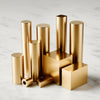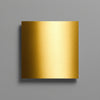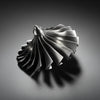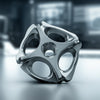
How to Formulate Machining Processes
Learn to plan machining processes step-by-step: from material selection & tooling to operation sequencing & quality validation. Optimize efficiency, cost, and precision for manufactured parts.

5 Points Tell You Why Manual Machining Still Dominates in the Age of CNC Precision
The Unreplaceable Value of Manual Skills in Digital Manufacturing
Walk into any CNC machine factory, and you’ll see lines of CNC machines well-organized operation. Yet in the corners are benches where master craftsman no robot can replace. Different with predictions of total automation, 73% of high-precision manufacturers retain specialized manual department—not to commemorate the spirit of craftsmanship, but it has a key factor to improve product precision. In aerospace, medical and automatic industrial, these experts deliver what machines cannot.

What is chromate conversion, this blog is enough.
Chromate conversion is a kind of chemical conversion coating. When we put metal parts into the acidic chemical solution(contains chromate), the metal surface will form a thin coating. This coating does not react with most things, thereby it can improving corrosion resistance of substrate and enhancing coating adhesion.

Laser Marking vs Silkscreen: How to Choose The Best Process for Your Parts
The Marking Dilemma
In manufacturing, part identification not only for appearance, but also for achieving specific functions such as traceability codes, safety labels, and branding, all of which impact the product lifecycle, compliance, and user experience. Therefore, we have to choose silkscreen or laser marking process from the cost, durability, material compatibility, and scalability, etc. Sometimes a small mistake of the marking can even lead to a rejected a batch of parts, supply chain delays and a 200% cost over. This blog teaches you how to choose between these two processes based on our factory data.

Beyond Machining Marks: The Surface Treatment Showdown for CNC Parts
Why Surface Treatment Matters More Than You Think
CNC-machined parts rarely perform optimally straight off the machine. Raw surfaces retain visible tool marks (Ra 1.6–6.3 μm), creating stress concentration points that reduce fatigue life by 15–30% . Post-processing eliminates these flaws while adding critical functionality: corrosion resistance, wear protection, aesthetic appeal, or dimensional stability. Selecting the wrong finish risks part failure, unnecessary costs, or rejected designs.





